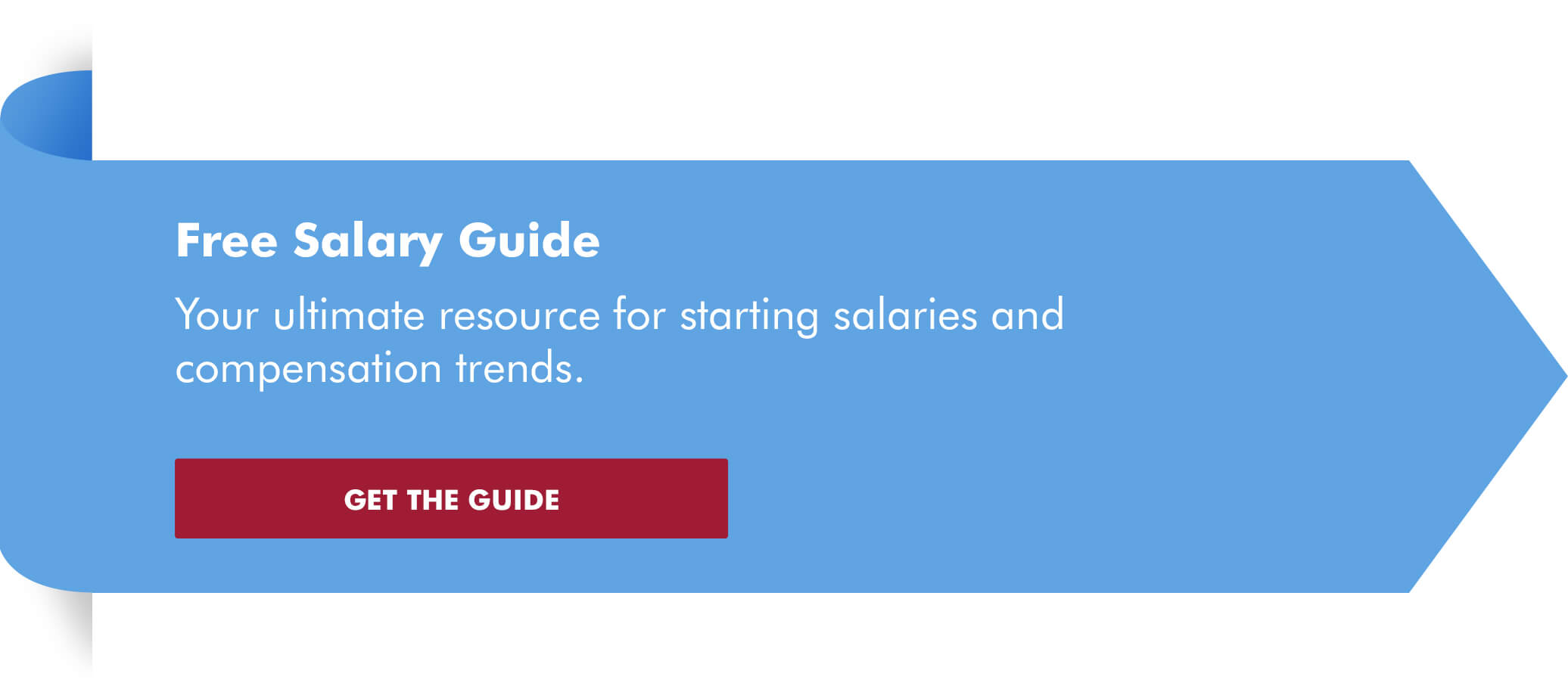Technology has reshaped the marketing field. Firms now have access to oceans of real-time data about how consumers make purchases, interact with their or their clients’ brands and products, and more. This information is a gold mine for companies — if they can figure out how to use it.
That’s where the demand generation manager comes in.
“Demand generation professionals or digital marketing roles with demand generation responsibilities are crucial to a company’s success, especially if they’re experiencing high growth or want to build brand awareness within a competitive market,” says Ashley Liatsis, an assistant vice president and director with Robert Half’s marketing and creative practice in Boston.
If you are a marketer with an analytical mindset and a persuasive personality, demand generation manager could be the job for you. Learn more about this position to see if it’s a good next step for your career path.
What is a demand generation manager?
As a demand generation manager, you’ll work as part of a larger digital marketing team to help create interest in and excitement for a company’s products or services to attract and retain customers, as well as drive revenue.
Demand generation managers oversee all of the tactics used to develop and cultivate long-term customer relationships. They use their skills and strategic knowledge to help businesses enter and succeed in new markets, advertise and sell new products, and fine-tune their customer experience programs. All of this can give their companies a competitive edge.
Some common job responsibilities you’ll have as a demand generation manager include:
- Developing and executing short- and long-term multi-channel campaigns to drive leads and the sales pipeline
- Leading A/B testing strategies and execution across all channels
- Monitoring and optimizing campaigns and programs
- Developing customer personas and knowing their buying preferences
- Knowing the company’s brand and products inside and out
- Assisting in content development to target consumers throughout the customer lifecycle
- Working within a team of digital marketing professionals and collaborating with other departments, like sales and content, to develop and enhance strategies and build effective support programs, such as sales enablement
- Identifying new markets and advertising tactics to encourage business growth
- Assuring buy-in and budget support from senior leadership and stakeholders
- Measuring and analyzing campaign and marketing success
- Delivering performance reports to leadership and departments you partner with
SEARCH DEMAND GENERATION MANAGER JOBS
What education, experience and technical skills will you need?
In this role, many employers look for candidates with a bachelor’s degree in marketing, business or a related discipline. You’ll also need three to five years’ experience working in the marketing industry. Employers look for candidates with a deep understanding of both the product and the customer journey that leads to buying that product. Experience creating sales and marketing content is often preferred.
Liatsis notes that, “If you’re interested in pursuing this career down the road, you should start in a digital marketing or integrated marketing role with a focus on lead generation, social media, email campaigns and analytics.”
Demand generation managers are expected to have robust resumes that demonstrate an expert understanding of both inbound and outbound marketing tactics, as well as digital marketing channels — particularly search engine optimization (SEO) and search engine marketing (SEM), pay-per-click (PPC), social media, and email.
A solid background working with a variety of industry-standard tools — including marketing automation platforms, such as HubSpot and Marketo — is a must in this position. In addition, hiring managers will expect you to be proficient in CRM programs like Salesforce, and other common digital marketing tools like Google Ads and Google Analytics.
Many firms will look for candidates who have the advanced analytics experience required to recognize actionable insights pertaining to the customer lifecycle. Depending on the clients of the firm or agency you work with, some employers may want you to have a background in B2B or B2C marketing.
Are tech skills all you’ll need?
Hardly. Along with a breadth of technical know-how, demand generation manager roles require a hearty assortment of soft skills. Chief among these is the ability to collaborate with others, as you’ll regularly work with cross-functional teams and upper management to achieve strategic goals.
The strategies developed by a demand generation manager will almost always require buy-in and resources from leadership and other departments, so you’ll need to be persuasive and also comfortable pushing back when necessary.
Additionally, outstanding written and verbal communication skills are essential in this role. You must be able to clearly convey the tactics and business goals associated with your demand generation strategies to coworkers and senior leadership. Likewise, you’ll need to be able to make the numbers talk when addressing executive teams by translating data points into measures of campaign success.
Demand generation manager salary
The latest Salary Guide from Robert Half lists average starting salary projections for demand generation managers in the United States. The rate of compensation for this role can vary, depending on the local market and your skills and experience.
According to the guide, starting compensation for a demand generation manager working at an agency or company this year is $92,250. This is a midrange starting salary that a candidate with average experience and most of the necessary skills for the job could expect.
Since marketing firms recognize the value of this in-demand position, you may see your paycheck bolstered with more robust benefits packages, incentives and perks that enhance work-life balance, such as flexible scheduling and telecommute options, health and wellness programs or open vacation policies.








